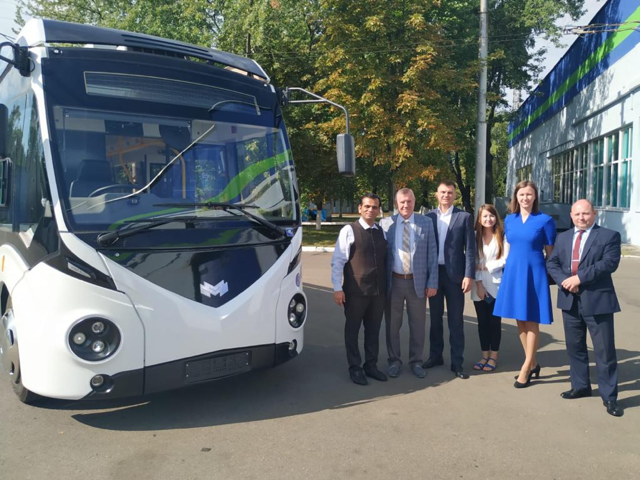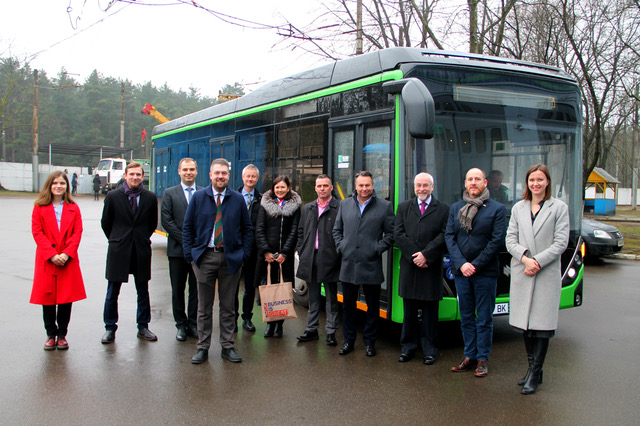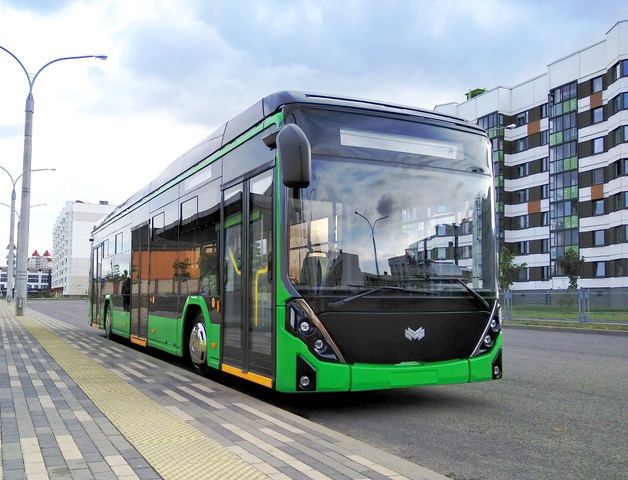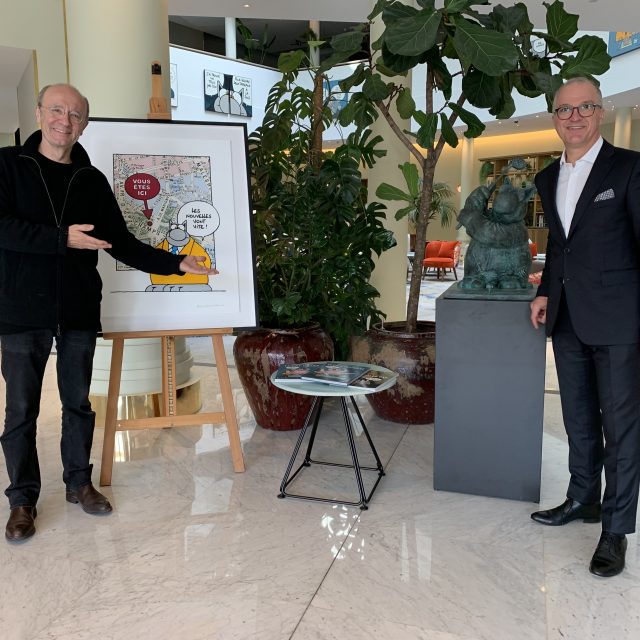In the European Union, with the Green Deal aiming to make the continent ‘climate neutral’ by 2050, low-carbon technology in transport will be key to reducing emissions. A Belarusian electric bus manufacturer has caught the attention of transport authorities in the UK, Poland and Spain with its innovative electrical system.
BKM Holding is a tram, trolley and e-bus firm from Belarus that uses supercapacitators instead of large heavy batteries – as a result it needs a short charge of 5 minutes to travel up to 30 km, instead of an overnight charge to travel longer distances.
In India too, before the pandemic hit in March, cities were facing the twin challenges of gridlock traffic and worsening air quality. Of the world’s 30 most polluted cities last year, 21 were in India. With the lockdown now easing and the economy opening up again, BKM Holding is well placed to cater to this growing demand with its electric buses.
Its Indian partner is energy supplier Axis Mobility, that is active in solar and wind energy. The plan is to supply small-scale energy systems to villages and towns where supercapacitators can be used to store electricity temporarily.

“India often has local shortages of electricity as well as an overburdened transport network. This joint venture will create local infrastructure for electricity generation along with a sustainable and low-carbon transport system,” said Alexander Zingman of AFTRADE DMCC, the official representative of the Belarusian manufacturer.
BKM Holding was founded as Belkommunmash in 1973 and has mainly built trams and trolley buses. In 2016 it began making electric buses. 300 vehicles leave the factory every year, including trams. More than 100 electric buses are already running in Minsk, the capital of Belarus, as well as in Russia, Ukraine, Azerbaijan and other countries.
Their electric bus is powered by electricity just like a trolleybus, but uses on-board supercapacitors rather than overhead wires. The vehicle consumes 14% less electricity than a trolleybus. It has a wheelchair space and USB ports to charge mobile phones on board the bus. The driver lowers the floor at the bus stop to make boarding and disembarking easier.
Normal electric buses use high-capacity batteries that charge overnight and last the whole day. This energy source has some disadvantages: high cost, heavy weight (which affects passenger capacity), and a short lifecycle. The batteries in the Belarus electric buses are smaller, and can be charged at a bus terminal in minutes.
BKM Holding’s product portfolio also includes electric buses that use lithium batteries that require overnight charging. But the company promotes its express charging technology based on supercapacitors for intra-city urban traffic.
The UK too is interested in this innovative technology, with an agreement signed in 2019 for the joint production of electric buses in Coventry, and a trial operation of the Belarusian electric bus in Nottingham.

“In the UK, they can operate a passenger vehicle for no more than eight years. They have to replace batteries at least twice during this period. In contrast, our electric bus and battery both have a running life of 12 years,” Zingman said.
The company estimates India’s demand for electric buses to be over 120,000. Electrification is high on the agenda of local public transport companies since the government decided that that all diesel buses should be replaced by electric buses by 2030.
BKM Holding and AFTRADE DMCC have already signed an agreement with their Indian partner to supply a sample batch of 40 electric buses to India, with a local plant being set up to assemble the vehicles. These have been designed with right-hand drive for Indian roads, and can operate at temperatures from -40 to +40°C. The pilot project aims to equip the state of Andhra Pradesh with electric buses.
With India signing up, other developing nations are now taking note. The joint venture is expected to deliver vehicles to African countries and the Middle East as well.
Meanwhile, across Europe, trade missions have been held expanding deepening economic ties with Belarus, especially in the field of electrical technologies in the engineering industry. As the continent works towards turning environmental challenges into opportunities, green transport will become a key milestone on the road to climate neutrality by 2050.




